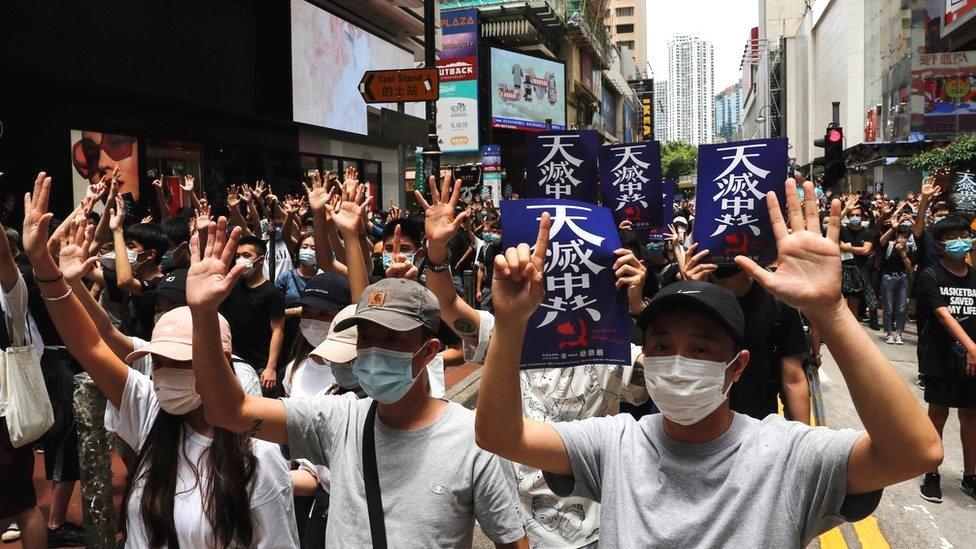Hong Kong Protests: Campaigners and police clash over new law
- Published
- comments

For the first time since the coronavirus outbreak in Hong Kong, protesters have taken to the streets.
Protestors blocked traffic in the centre of the region, and now over 300 people have been arrested as a result of this latest protest.
These demonstrations are related to a new law but are also linked to huge protests that took place in Hong Kong in 2019.
So what's going on and why are people so unhappy about it?
What has happened?
Hong Kong is controlled by China but is a Special Administrative Region - that means it has more independence than some other areas and different rules to the rest of China.
But now the government in Beijing, China's capital, has said they want a new law, that would bring much harsher punishments to people who break certain rules.
Many people in Hong Kong see these laws as a threat to their rights and think China wants to make Hong Kong more like China.
The protests have seen violence erupt between police and protestors and water cannons and tear gas have been used.
Why are people protesting?
Why did the Hong Kong protests start last year?
Last year's protests were about an extradition bill, which aimed to allow people arrested for certain political actions to be tried in China.
That law was scrapped after protests in 2019, but now the Chinese government wants to bring in new security rules seeking to ban "treason, secession, sedition and subversion."
Treason: this means working against the country of which you are a citizen
Secession: this is action to break away from a country - in this case Hong Kong become totally independent from China
Sedition: actions or speech inciting people to rebel against the authority
Subversion: The undermining of the power and authority of the government
Police fire a water cannon to disperse protesters in Causeway Bay
The protesters are worried about what the definition of what attempting to 'overthrow' the government means - and fear it could will take away from their freedom of speech and their right to criticise the actions of the Chinese government.
They want to be able to have their own opinions and to be able to express them without fear of being arrested and punished.
What are other countries saying?
Carrie Lam is the leader of Hong Kong, but many protestors feel she is too close to China
Many countries aren't comfortable with the way China is behaving.
Earlier, 200 senior politicians from around the world issued a joint statement criticising China's plan, calling it a "comprehensive assault on the city's autonomy, rule of law and fundamental freedoms".
They want Hong Kong's leader Carrie Lam to re-think how Chinese police deal with protesters.
The world leaders have also asked for a neutral investigation into the methods used against protesters, in the hopes that the violence will be corrected and come to an end.
- Published12 August 2019
- Published20 September 2019
- Published20 January 2015
